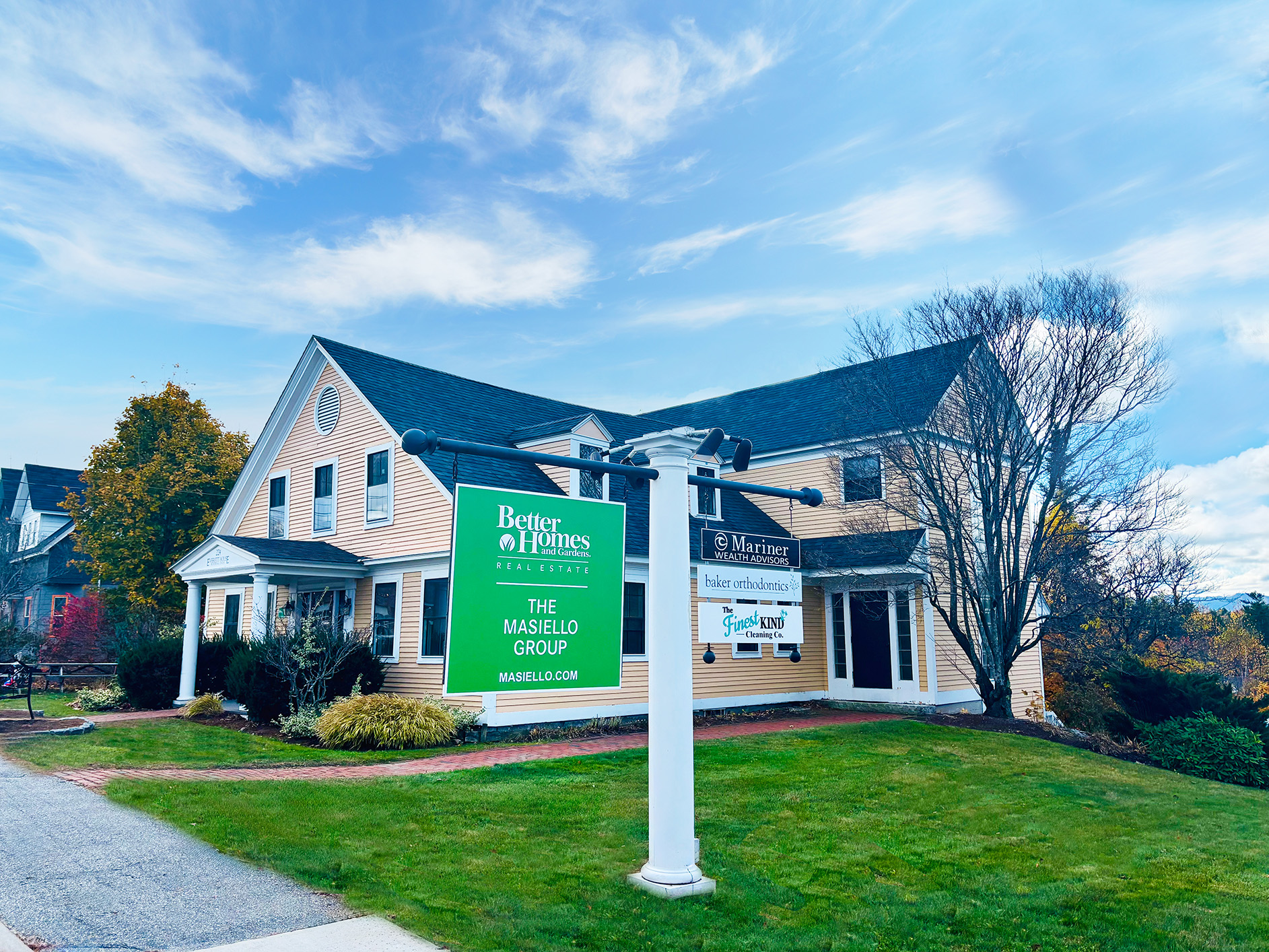
I recently spent 2 days at a class put on by the Real Estate Business Institute to become a certified negotiation expert and thought it would be good to share some points made during this time. Some might just surprise you!
- Negotiations are really between the two agents and not the buyers & sellers. While the goal is for each to get the best possible outcome based on their clients’ needs and wants, the reality is that it is the two agents who are communicating with each who make it happen. How well the agents negotiate with each other can make or break it for their clients.
- In any negotiation, you need to know if the market conditions are with or against you. For example, if you are a buyer in a sellers’ market, the market may push you to make decisions quickly.
- If a deal gets “deadlocked”, sometimes taking a time-out is helpful to allow everyone to re-group and re-assess their wants and needs.
- There are always at least 2 negotiation points in a sale – the first with the offer and the 2nd after the home inspections.
- The best negotiator will focus on the fix and not the fight.
Contact me if you’d like to have a skilled negotiator working on your side to help achieve your “yes”! Donna Forest 603-526-4116, www.DonnaForest.com, Donna@DonnaForest.com.

The National Association of REALTORS recently published their annual survey of recent home buyers and sellers. This covers information on national housing data such as demographics, housing characteristics, and consumer experiences. Below are come interesting highlights from the 2016 survey.
- First time home buyers made up 35% of the total buyers - up 3% from 2015.
- 'Buyers typically searched for ten weeks and looked at a median of ten homes before purchasing.
- 88% of buyers used an agent in their buying process.
- 88% of buyers got a mortgage to finance their purchase.
- Sellers typically lived in their home ten years before selling.
- 89% of sellers worked with an agent to sell their home.
- Only 8% of the homes sold were for sale by owner (FSBO) and sold for less than agent-assisted sales.
Contact me if you want to work with an agent who knows the pulse of buyers and sellers in today's market! 603-526-4116, Donna@DonnaForest.com, www.DonnaForest.com
 There are certain unwritten rules of etiquette buyers should follow when they are out looking at homes. Most are common sense and just plain ole being courteous! Below are some tips for being a courteous buyer.
There are certain unwritten rules of etiquette buyers should follow when they are out looking at homes. Most are common sense and just plain ole being courteous! Below are some tips for being a courteous buyer.
- Take shoes off. Mud, snow, rain - you may be out looking in all types of weather so don't tramp through a house with your wet/dirty shoes on. Take them off and go in your socks or bring clean shoes to wear. Extra tip - check your socks for holes before heading out!
- Control your kids. They shouldn't play with the toys they found or run unattended through the home.
- Be on time. When showings are set up, the seller leaves the house, a listing agent meets you there along with your buyer's agent. Being late impacts many people, not to mention it may put the whole showing schedule behind. Unavoidably detained? Then call your agent for a heads up.
- Don't spend an hour viewing a home you already decided you dislike. It's okay to do a quick look and say it's not to your liking.
If you are looking for a buyer's agent to help navigate successful home buying, then contact me and follow me on Facebook! 603-526-4116; Donna@DonnaForest.com; www.DonnaForest.com
You’ll be moving in the right direction with Coldwell Banker Milestone Real Estate.
By: Dona DeZube From mortgage interest to property tax deductions, here are the tax tips you need to get a jump on your returns.
- If you’re the only one using your vacation home (you don’t rent it out for more than 14 days a year), you deduct mortgage interest and real estate taxes on Schedule A.
- Rent your vacation home out for more than 14 days and use it yourself fewer than 15 days (or 10% of total rental days, whichever is greater), and it’s treated like a rental property. Your expenses are deducted on Schedule E.
- Rent your home for part of the year and use it yourself for more than the greater of 14 days or 10% of the days you rent it and you have to keep track of income, expenses, and allocate them based on how often you used and how often you rented the house.
 Consumer Reports, March 2016, published an article on “8 Ways to Boost Your Home’s Value”, based on their survey of 1,573 millennials. Millennials & downsizing baby boomers are the next wave of buyers. Sellers should take note of what they are looking for in a home:
Consumer Reports, March 2016, published an article on “8 Ways to Boost Your Home’s Value”, based on their survey of 1,573 millennials. Millennials & downsizing baby boomers are the next wave of buyers. Sellers should take note of what they are looking for in a home:
- A modern kitchen topped the list. Consider adding new stainless steel appliances, quartz countertops, updating cabinets and hardware. Potential bump in sale price 3-7%
- Open floor plan w/flexible living space. Consider finishing the basement, carving out space for an office, creating an in-law apartment. Potential bump: 4-6%
- Energy efficiency. Consider energy star rated windows, LED lights, efficient water heaters. Potential bump: 1-3%
- Stress-free living. Consider updating aging systems, new roof, adding hardwood floors. Potential bump: 3-5%
- Have a home for “the ages”. First floor master, walk-in shower, comfort height toilets. Potential bump: 1-2%
- Low maintenance outdoor spaces. Avoid overly lush landscaping. Potential bump: 3-5%.
Contact me if you’d like a copy of the full article so you can make informed decisions on your next home improvement projects. Donna Forest 603-526-4116, Donna@donnaforest.com, www.DonnaForest.com
 The housing market has settled into a steady groove with home prices expected to follow more normal rates consistent with a balanced market. Home prices rose 4% nationally in 2015. Kiplinger forecasts prices to rise 3% in 2016 while CoreLogic Home Price Index predicts a 4-5% increase. What type of buyer will drive the market this year? According to the National Association of REALTORS®, there are 3 main sectors of buyers expected to stimulate the housing sector.
The housing market has settled into a steady groove with home prices expected to follow more normal rates consistent with a balanced market. Home prices rose 4% nationally in 2015. Kiplinger forecasts prices to rise 3% in 2016 while CoreLogic Home Price Index predicts a 4-5% increase. What type of buyer will drive the market this year? According to the National Association of REALTORS®, there are 3 main sectors of buyers expected to stimulate the housing sector.
- Millennials, born about 30 yrs. ago, are starting to realize their financial goals and thus become first-time home buyers.
- Older baby boomers nearing retirement age will be seeking to downsize and lower their cost of living.
- Formerly distressed homeowners are expected to actively participate in the housing market as well.
Every market is local and there are certain parts of the country with “hotter” markets than others. Whether buying or selling, contact me if you’d like to know how the local market impacts you. Donna@DonnaForest.com, 603-526-4116, www.DonnaForest.com.
 As 2015 comes to an end, I started reflecting on the year and what I’ve observed. I thought it might be helpful for buyers and sellers if I shared a few thoughts. In no particular order, here are my words of wisdom!
As 2015 comes to an end, I started reflecting on the year and what I’ve observed. I thought it might be helpful for buyers and sellers if I shared a few thoughts. In no particular order, here are my words of wisdom!
- Most buyers don’t want a project. They don’t have the inclination to fix up a house. Sellers need to repair/ update their homes in order to sell.
- Sellers should disclose everything; good and bad. Not disclosing will end up costing you.
- Location, location still holds true. Today’s buyers want to be near amenities and closer to town. Rural areas hold less appeal; targeting about 11% of the buyers.
- Antique homes take longer to sell - only about 8% of the buyers are looking for one.
- If you wait to find the “perfect” home to buy, you will never find a home.
- Home prices have risen since 2013. You will end up paying more for a house the longer you wait to buy.
And lastly, it still is a good time to purchase a home. Low pricing, historically low rates, and good inventory combine to make perfect buying conditions. Thinking of buying or selling? Give me a call! Donna Forest 603-526-4116, www.donnaforest.com, donna@donnaforest.com
You’ll be moving in the right direction with Coldwell Banker Milestone Real Estate.
It’s time for your annual check-up. The good news is that for this one, you won’t have to don one of those revealing hospital gowns — and you may walk away with a healthier pocketbook. We’re talking about a homeowners insurance check-up, a task you should complete once a year, ideally around renewal time. This will ensure your policy still provides the right level of coverage for your family, and your premium isn’t costing you more than it should. Remember, homeowners insurance is essential. The coverage is designed to protect your home and its contents, as well as shield you from liability for accidents and such on your property.
 A new rule from the Consumer Financial Protection Bureau went into effect Oct. 3 requiring lenders to give consumers more time to review their loan documents. Mortgagors must give borrowers the terms of their loan and final charges & fees at least 3 days before the closing (7 days if sent by mail). It is designed to protect you from surprises at the closing table. Sounds pretty simple, right? Well the reality is, it is a massive change in the way lenders do business from new forms to new timetables. The 3 day period is mandatory and this waiting period can start over again if one of 3 changes occur: 1) The annual percentage rate increased more than 1/8th; 2) The loan product changes like switching from a fixed rate to an adjustable; or 3) A pre-payment penalty is added. Other alterations don’t require a new 3-day review like revisions to taxes, utility prorations, etc. Until lenders have some time under their belt in dealing with these new regulations, buyers & sellers need to be prepared. 60 day closings may be the normal, last minute changes most likely will not be authorized, required paperwork will need to be completed earlier, and buyers & sellers should have a backup plan in the event something triggers a new 3-7 day waiting period and you can’t close as scheduled. Contact me if you are looking to work with a knowledgeable REALTOR® who can help you successfully navigate the buying or selling process! Donna Forest, Broker Associate, 603-526-4116, www.DonnaForest.com, donna@donnaforest.com.
A new rule from the Consumer Financial Protection Bureau went into effect Oct. 3 requiring lenders to give consumers more time to review their loan documents. Mortgagors must give borrowers the terms of their loan and final charges & fees at least 3 days before the closing (7 days if sent by mail). It is designed to protect you from surprises at the closing table. Sounds pretty simple, right? Well the reality is, it is a massive change in the way lenders do business from new forms to new timetables. The 3 day period is mandatory and this waiting period can start over again if one of 3 changes occur: 1) The annual percentage rate increased more than 1/8th; 2) The loan product changes like switching from a fixed rate to an adjustable; or 3) A pre-payment penalty is added. Other alterations don’t require a new 3-day review like revisions to taxes, utility prorations, etc. Until lenders have some time under their belt in dealing with these new regulations, buyers & sellers need to be prepared. 60 day closings may be the normal, last minute changes most likely will not be authorized, required paperwork will need to be completed earlier, and buyers & sellers should have a backup plan in the event something triggers a new 3-7 day waiting period and you can’t close as scheduled. Contact me if you are looking to work with a knowledgeable REALTOR® who can help you successfully navigate the buying or selling process! Donna Forest, Broker Associate, 603-526-4116, www.DonnaForest.com, donna@donnaforest.com.
Known for service, trusted for results – Coldwell Banker Milestone Real Estate.
 If you’ve been on the fence about buying your first house or moving up to a larger one, waiting until next year may ultimately mean more money out of your pocket. Why? Not only are home prices rising, the interest rate you pay on a mortgage is also expected to increase. The higher the rate, the greater the payment will be. Let’s look at an example of how this impacts a mortgage payment. Say you found your dream home today and are getting a loan for $250,000. Current mortgage rates are around 4% so the monthly payment is $1194 (principal and interest only). By this time next year, rates are projected to increase to around 5% and home prices are also expected to increase about 4.3%. To buy that same house, you now are getting a loan for $260,750 and the monthly payment is $1400. The difference in payment is $206 more a month! Over the course of a year, that is $2472. Hmm, I’m sure you could think of plenty of things to do with that kind of extra money! Bottom line, if you seriously want to buy, waiting until next year does not make sense. Contact me if you want to take advantage of today’s rates and pricing to find your new home. www.donnaforest.com, donna@donnaforest.com, 603-526-4116.
If you’ve been on the fence about buying your first house or moving up to a larger one, waiting until next year may ultimately mean more money out of your pocket. Why? Not only are home prices rising, the interest rate you pay on a mortgage is also expected to increase. The higher the rate, the greater the payment will be. Let’s look at an example of how this impacts a mortgage payment. Say you found your dream home today and are getting a loan for $250,000. Current mortgage rates are around 4% so the monthly payment is $1194 (principal and interest only). By this time next year, rates are projected to increase to around 5% and home prices are also expected to increase about 4.3%. To buy that same house, you now are getting a loan for $260,750 and the monthly payment is $1400. The difference in payment is $206 more a month! Over the course of a year, that is $2472. Hmm, I’m sure you could think of plenty of things to do with that kind of extra money! Bottom line, if you seriously want to buy, waiting until next year does not make sense. Contact me if you want to take advantage of today’s rates and pricing to find your new home. www.donnaforest.com, donna@donnaforest.com, 603-526-4116.



